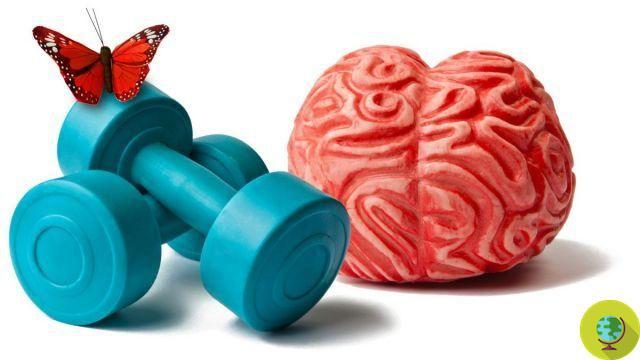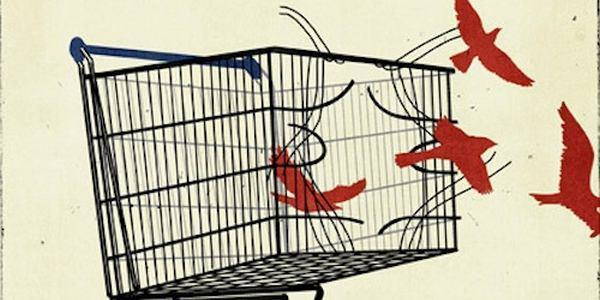
Food has emotional, symbolic, relational values; it takes us back to primary relationships. Why we eat certain foods, what emotional support we seek.
Don't store avocado like this: it's dangerousWhen we eat, whatever we put on our plate, we do not introduce into our body only nutrients, calories, proteins, carbohydrates, minerals or the energetic quality of the food; inside our food there is much more: symbolic meanings, emotions and relationships that travel hidden on our level of consciousness.
The nourishment is undoubtedly one of the first non-verbal languages with which each of us is confronted from the first moments of his life and represents a fundamental necessity; the breast milk (which ideally gratifies, satisfies, brings pleasure and relaxation to the body) satisfies survival needs of the body but, at the same time, there allows you to enter into a relationship with the emotions transmitted by the mother: affection, understanding, security, consideration (in other words: love) or with anxiety, nervousness, disapproval, fatigue (the perception, albeit indistinct, is of lack or deficit of love).
What we eat reminds us and brings us back to the first important emotional relationship and symbolically reminds us of the quality of that love; that's why it can definitely be said that, in some way and symbolically, through food we can pass energy of love: the way it is thought, the type of ingredients used, the attention and time in cooking, the present intention when it is put on the plate they make the difference and themselves become quality, “flavor” and nourishment which is added to the nutrients “traditionally” intended. Food is also family, rituals, shared emotions and situations, culture.
The first meal of our life, and then all the others, therefore, always take us in relation to something, which thanks to digestion will become part of us (what we eat, its history and its state of consciousness before arriving on our plate as well as its symbolic values), with someone (who prepared that course for us and, indirectly, with our first primary relational sources, the parents; of course, there could be - growing up - also other important relational references) and with a translated content of nourishment-love.
So often we increase the daily amount of food when we need comfort: it is a bit like giving oneself more strength, looking outside (and in an inappropriate way) for the missing dose of love and other forms of nourishment for the soul and spirit.
Albeit unknowingly, we choose what to eat in a compensatory way not only following the satisfaction of the palate but depending on the symbolic meaning of the single food and the consequent unconscious pleasure it offers us:
- i soft foods, bring back in a dimension of affective integration; those hard, crunchy they bring information of grit, resilience;
- the sweet foods they compensate for a need for regression, dependence and care, they are consolers; those salted they reinforce mature, independent, strong-willed behavior;
- the choice on simple dishes reveals a need for clarity, linearity; elaborate dishes they may indicate a need for integration of different, complex aspects;
- the products of animal origin they bring with them an element of strength and aggression; those vegetable they open up more to a harmonious relational dimension, they may indicate a need for lightness;
- milk and dairy products they speak to us of the mother and, more generally, of "maternage";
- cereals, especially wheat, speak instead of the "father";
- the tubers they represent our original nucleus, the forces deposited in the earth, our roots;
- the sprouts they represent the explosion of the new energy, the new that has yet to take shape.
That's not all: the way food was given to us as children and the quality of the underlying emotions they make a difference.
If, for example, we were given - regularly - when we were tired, nervous, to distract us from tantrums, as a "pacifier", as a remedy, as a reward for a certain behavior of ours, to keep us busy with something or for other reasons that do not had nothing to do with our physiological hunger (but rather with other needs, physical or relational, expressive), as we grow up we will tend, spontaneously, to open the refrigerator or pantry to find a compensatory response to the emotional distress of the moment: "anesthetics" that do not make you feel fatigue; substitutes for affection and safety or cuddles; something that fills needs that are not clearly identified but unsatisfied. We will try to fill a void, blunt a feeling of boredom, do not think about loneliness.
Food as a substitute for love, because love is the only truly fundamental nourishment that makes the difference in the quality of life: being aware of it is the first step. The second is to observe how we eat and why, what is really "underneath" (appetite or something else?) And then, with kindness and respect towards oneself and what is currently there, take care of it: starting to provide those nutrients (different) that the mind, body, emotions and spirit require.
Anna Maria Cebrelli


























